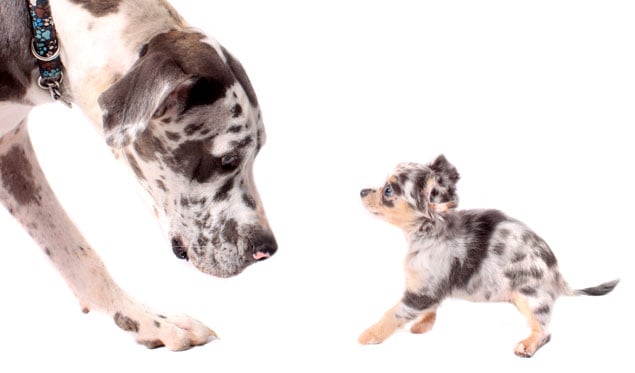Each breed of dog has its own health concerns, vets say—and some of the most adorable
and popular kinds have the most—so it’s a good idea to do your research before committing
to a breed.
Though they’re among the friendliest dogs, brachycephalic—or “short-faced”—breeds
such as bulldogs, pugs, and Shar-Peis are prone to respiratory issues and don’t tolerate
heat well. Their skin folds can also lead to dermatitis.
“There’s no dog cuter than an English-bulldog puppy,” says veterinarian Matthew Antkowiak
of AtlasVet in Northeast DC. “But people see these puppies and don’t realize that
five years from now they’re going to be snorting and snotting and have stinky skin.
You have to be prepared.”
Cavalier King Charles spaniels are susceptible to heart conditions. Dachshunds, because
of their low-to-the-ground frames, have back problems, sometimes requiring expensive
surgery.
Larger breeds often come with larger problems. Great Danes, German shepherds, boxers,
and retrievers are predisposed to joint problems and cancer. Giant breeds such as
Great Danes have significantly shorter life spans than most smaller ones. While a
Chihuahua can live 15 years or more, a Great Dane will likely reach eight years at
most.
Is it true that mixed breeds are healthier overall? Dr. Antkowiak says probably so.
“The thought is you’re mixing the gene pool,” he says—thereby avoiding the negative
traits inbreeding can perpetuate.
















